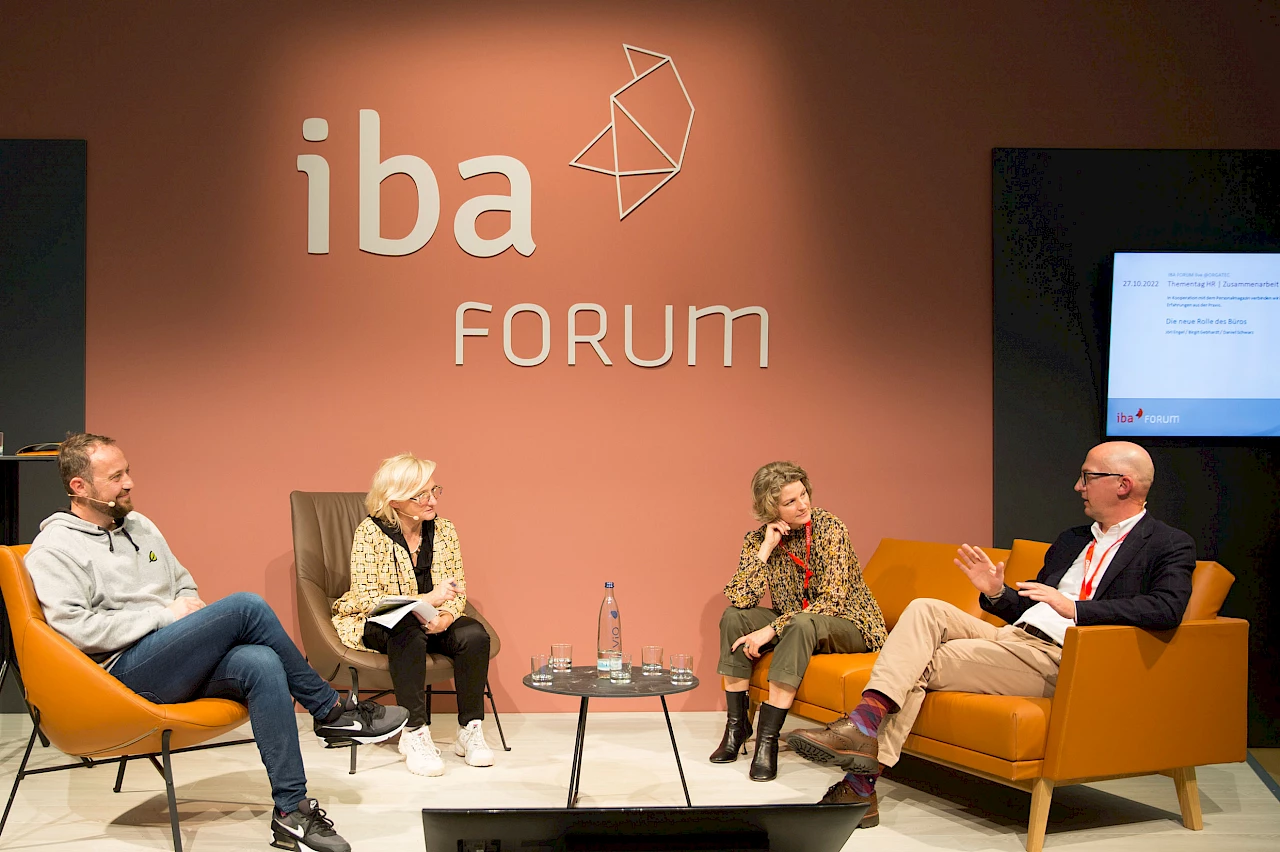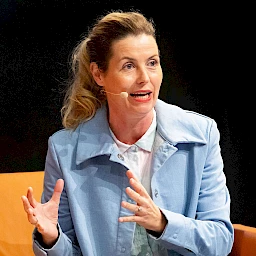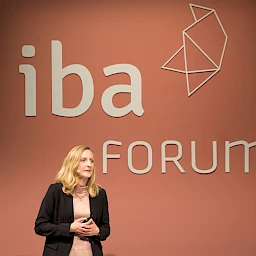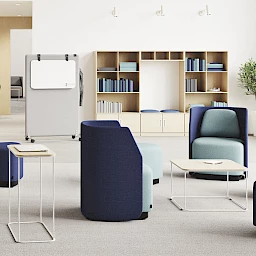At the HR theme day at ORGATEC, Personalmagazin brought together future research and practice under the moderation of Katharina Schmitt. Hamburg trend expert Birgit Gebhardt, Jöri Engel, CEO of Swisscom Immobilien AG, and Daniel Schwarz, Managing Director of lise GmbH, discussed the new role of offices.
How collaboration will be shaped in the future in terms of space and content is a question that is currently moving many experts in the office and working world. The experts agree that the role of the office remains an important one, but that spatial design must change.
Productivity of the collective, infrastructure and ergonomics favour the office
Jöri Engel is a supporter of working in the office, partly because corporate culture can be experienced here and the collective’s productivity is created. What is needed, however, is a transformation of spaces into more areas where employees can meet and exchange ideas. In addition, there needs to be a stronger involvement of managers and flexibility in workplace design with regard to individual employee needs. Imposing a role model on professionals does not work any more as well as office design that is carried out purely by real estate and facility management. Space design by interdisciplinary teams that involve employees at an early stage and identify their needs and expectations can positively influence both the perceived office quality and the use of office space. Engel advises against mandatory presence. Instead, it is important to explain to employees why it is good to work in the office more often again. Namely because neither remote nor mobile infrastructure and ergonomics are as good as in the office. Because presence in the office creates added value that goes beyond individual performance. And because spontaneous interaction promotes creativity, which is needed for the innovative potential of the collective.
„The classic workstation is often stigmatised. For me, however, there is nothing wrong with this type of work. I count myself among those people who like to work in the office, who need the distance between private and working life and appreciate the excellent infrastructure on premise. Furthermore, in my opinion, high demands on ergonomics can only be guaranteed in a well-designed office. The way work is done on the move or at home makes your hair stand on end in the meantime.“ Jöri Engel
The office as a space for social exchange and active corporate culture
Daniel Schwarz, managing director of lise GmbH, recently moved his IT company to the “kite” office complex in Cologne. Smart office, desk sharing and app booking system included. Schwarz appreciates the personal exchange with his software development teams on site. The lise offices are designed in such a way that instead of individual workstations, there are flexible work zones where agile project teams can get together. Larger areas, the so-called focus zones with about 20 workstations, allow for quiet work. In addition, lise offers project work areas in the form of offices for 4 or 6 people, where it is also possible to close a door and to be noisy in this space. The area is supplemented by the so-called mixed zone, where there are no rules, where employees can meet and where things can get more lively. In between, there are always areas of retreat in form of think tanks, meeting rooms and telephone booths.
One reason for lise GmbH’s investment in the new office space was the desire to facilitate social exchange and make corporate culture tangible. “During the pandemic, we realised that our culture was completely going to rack and ruin,” says Schwarz. Now employees really enjoy working in the office, which is partly due to the fact that the teams were involved in the design of office spaces at an early stage. The flexibility in terms of workplace choices has also meant that the show rate has doubled with the introduction of the booking system. At the same time, not everything has to be hybrid for Schwarz. The Last Friday Meeting, which used to be broadcasted online as well, has recently been held live only at lise. “Only the office can generate emotionality, a high energy level, excitement and a certain speed in interaction,” says Schwarz.
The office wins if it supports work intentions better than other workplaces
For Birgit Gebhardt, a decisive success factor for offices will be how well they succeed in offering employees user experience and designing spaces for different work intentions. It is important to develop new qualities in spaces that support users in carrying out their respective activities. And also to work with human resources on the didactics for the use of work tools so that spaces can be used better. For the Hamburg trend expert, the office will become much more of an event space in the future, where people share experiences. A place where the positive energy of the physical space can make some work intentions more rewarding than in other workplaces.
The panelists agree on this: even far from a top-down presence requirement, there are enough qualities that favour the attractiveness of the office as a workplace. For its new role, however, both spaces and working models must change.
You can find the recording of the panel discussion in our media center.
Katharina Schmitt works as an editor at Haufe Group. The lawyer and co-founder of Personalmagazin is responsible for the topics of compensation, new ways of working and health management, among others.
Jöri Engel is CEO of Swisscom Immobilien AG and, as Head of Corporate Real Estate Management, responsible for Swisscom’s properties.
Birgit Gebhardt is a trend expert with a focus on the “future of the working world”. As an impulse generator, she accompanies think tanks, supports the development of agile leadership and work cultures, and provides future-oriented learning tools.
Daniel Schwarz is the founder and managing director of the software developer lise GmbH based in Cologne. He and his 75-strong team recently moved into the kite at Butzweilerhof, currently one of the largest office buildings in Cologne.







